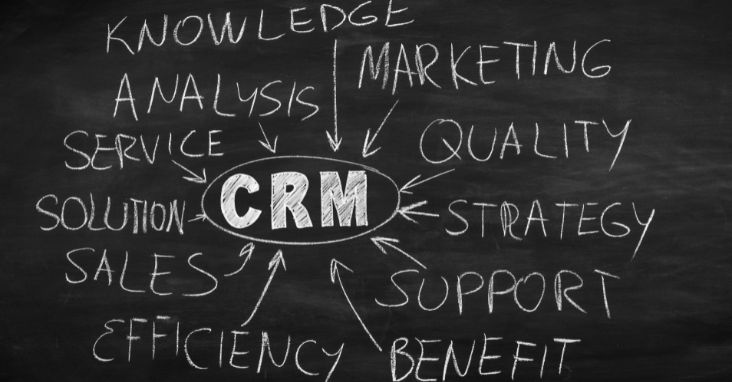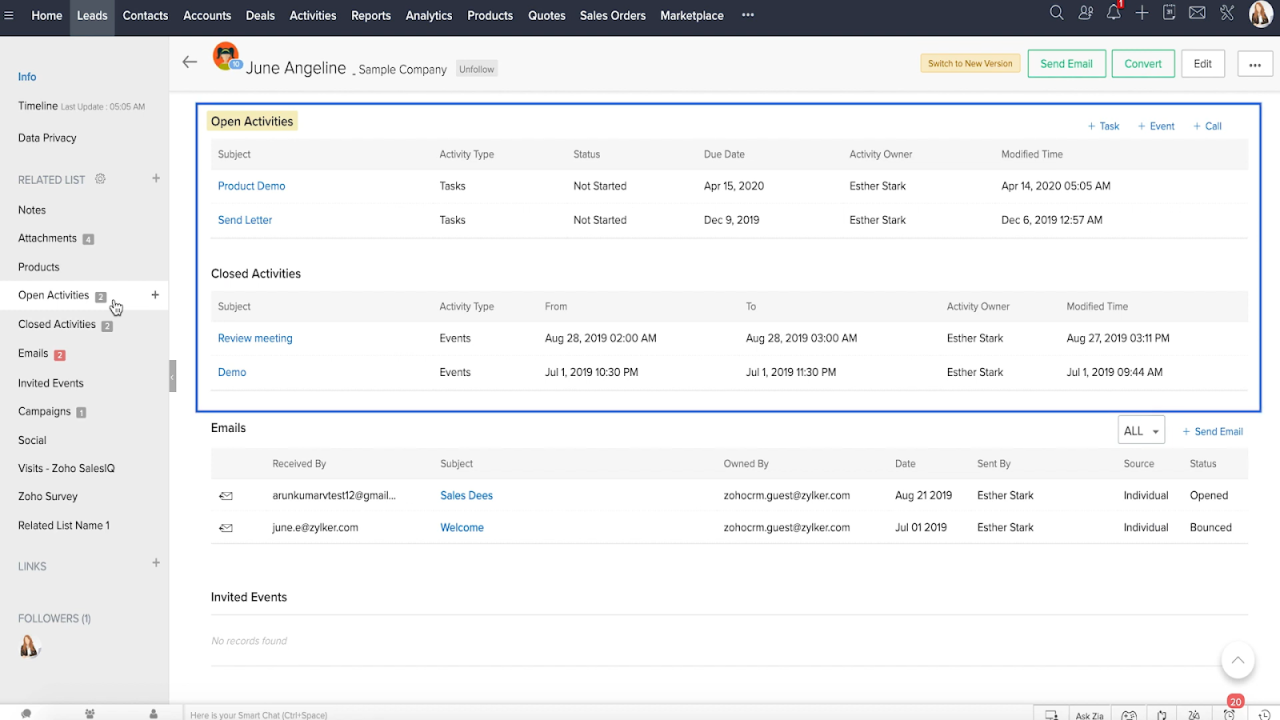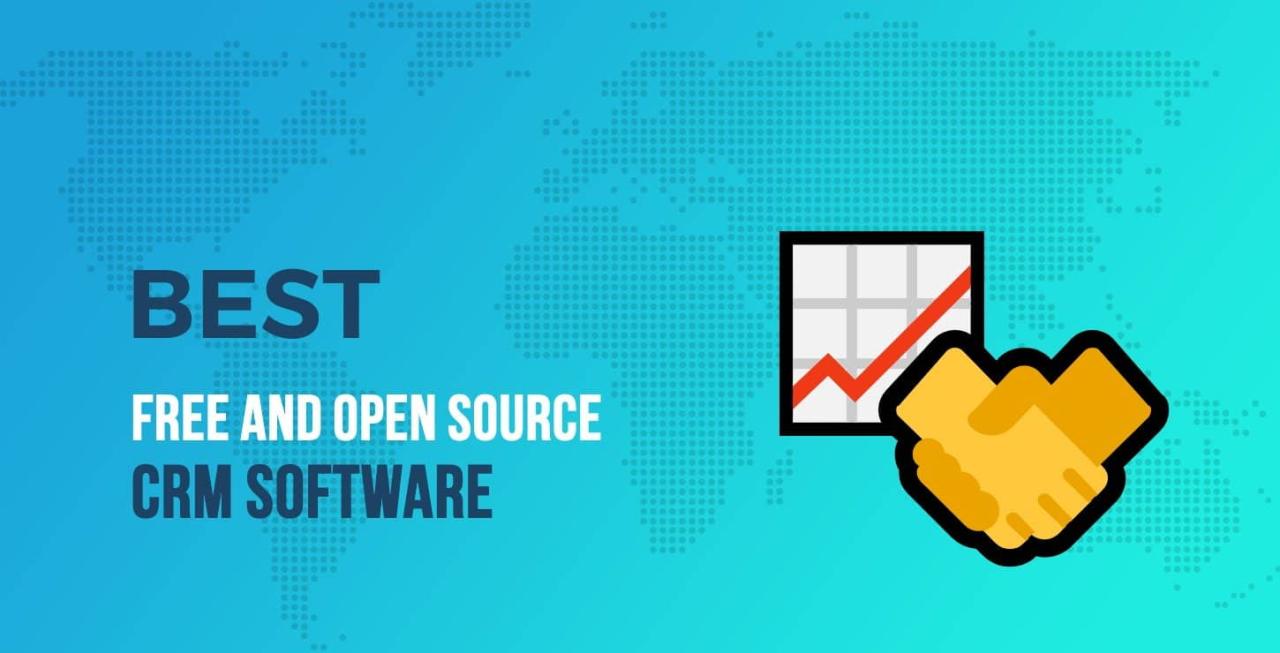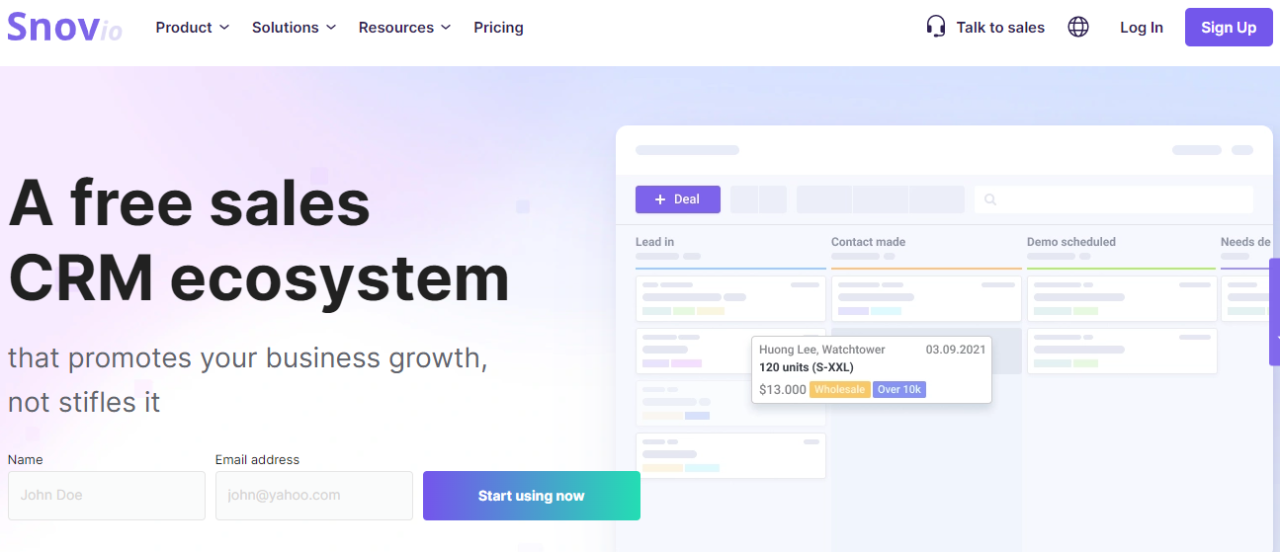Ready to revolutionize your business operations without breaking the bank? A free CRM solution can be a game-changer, offering powerful tools to manage contacts, track leads, and boost your sales and marketing efforts. This comprehensive guide dives deep into the world of free CRM software, exploring its diverse types, features, and implementation strategies. Get ready to discover how a free CRM can empower your business to achieve its full potential.
From small businesses to non-profits, a free CRM can significantly streamline workflows and enhance customer relationships. This in-depth look at free CRMs will equip you with the knowledge to navigate the options and choose the perfect solution for your needs. We’ll examine different types of free CRM software, covering cloud-based and on-premises solutions, and provide examples for various industries.
Introduction to Free CRM
Unlocking the power of customer relationship management (CRM) doesn’t require a hefty price tag. Free CRM software provides a valuable toolkit for businesses of all sizes, from startups to established enterprises, to manage their interactions with clients effectively. It empowers teams to streamline processes, boost efficiency, and foster stronger customer relationships, even on a limited budget.
Free CRM solutions offer a surprisingly comprehensive set of features, enabling businesses to achieve significant improvements in customer engagement and retention. While the feature sets might be more basic compared to premium solutions, they often cover essential functionalities, making them a viable option for those seeking cost-effective solutions.
Understanding Free CRM Software
CRM software, or Customer Relationship Management, is a system designed to manage interactions with current and potential customers. It encompasses tools for tracking customer data, managing sales leads, automating marketing campaigns, and facilitating customer service interactions. Free CRM solutions provide a simplified version of this functionality, allowing businesses to experience the benefits of CRM without significant upfront investment.
Benefits of Free CRM Solutions
Free CRM solutions offer a range of advantages, particularly for small businesses or non-profits. These benefits extend beyond simply lowering costs; they enhance operational efficiency, leading to improved customer service and stronger relationships. The ease of use and accessibility of free CRMs enable teams to rapidly implement and benefit from the software.
- Cost-effectiveness: Free CRMs eliminate the upfront investment required for premium software, making them accessible to businesses with limited budgets. This allows businesses to focus their resources on other aspects of growth.
- Ease of Use: Many free CRM platforms are designed with intuitive interfaces and straightforward navigation. This minimizes the learning curve, allowing users to quickly adopt and utilize the system’s functionalities.
- Accessibility: Free CRMs are typically accessible through web browsers, eliminating the need for complex installations or software downloads. This accessibility allows users to work from anywhere with an internet connection.
- Scalability: While initial functionality might be limited, many free CRMs allow for growth. As a business scales, users can often upgrade to a paid plan to access more advanced features.
Typical Features of Free CRM Solutions
Free CRM solutions generally encompass core functionalities, enabling businesses to manage contacts, track interactions, and automate tasks. These features are crucial for organizing customer information and streamlining workflow.
- Contact Management: Free CRMs typically allow users to store and manage customer contact information, including names, addresses, phone numbers, and email addresses. They also often allow for categorizing contacts for easier organization.
- Task Management: Most free CRM solutions offer task management capabilities. Users can create, assign, and track tasks related to specific customers or projects. This helps ensure follow-ups and actions are completed.
- Lead Tracking: Free CRM solutions can help track potential customers, recording their interactions and progress through the sales funnel. This enables targeted follow-ups and improved conversion rates.
- Reporting and Analytics: Basic reporting and analytics features allow users to track key metrics, such as sales performance and customer engagement. This data can be valuable for understanding trends and improving business strategies.
Comparison of Free CRM Solutions
Different free CRM solutions cater to diverse needs, from small businesses to non-profit organizations. The following table Artikels some key distinctions:
| Category | Focus | Typical Features | Suitable for |
|---|---|---|---|
| Small Businesses | Growth and efficiency | Contact management, lead tracking, task management | Startups, sole proprietorships, small teams needing a centralized system |
| Non-Profits | Fundraising and volunteer management | Contact management, event tracking, volunteer scheduling | Organizations seeking to streamline donor relations and volunteer engagement |
| Freelancers | Project management and client interaction | Task management, project tracking, invoicing (limited) | Individuals needing tools to manage multiple clients and projects |
Types of Free CRM Software

Unlocking the potential of free CRM software involves understanding the different types available. These systems cater to various needs and preferences, from small businesses just starting out to established enterprises seeking cost-effective solutions. Choosing the right type depends heavily on your business’s size, complexity, and technical capabilities.
Free CRM systems, though offering significant value, come in various forms, each with unique characteristics. This exploration delves into the distinctions between cloud-based and on-premises options, highlighting their respective strengths and weaknesses. Understanding these differences will empower you to make an informed decision about which type best suits your requirements.
Cloud-Based Free CRM Systems
Cloud-based free CRM systems reside on remote servers managed by the provider. This eliminates the need for on-site infrastructure, making setup and maintenance considerably easier. The accessibility of these systems is a major advantage, allowing users to access data from anywhere with an internet connection. A significant benefit lies in the automatic updates and scalability offered by cloud-based solutions, adapting to growing business needs with minimal effort.
On-Premises Free CRM Systems
On-premises free CRM systems, in contrast, are installed and maintained on a company’s own servers. This gives businesses greater control over their data and security. However, this control comes with responsibilities for server management, software updates, and potential maintenance costs. Businesses with specialized security needs or extensive customization requirements may find on-premises solutions more appealing. This type of system offers more control but demands more technical expertise and investment.
Comparison of System Types
| Feature | Cloud-Based | On-Premises |
|—|—|—|
| Data Security | Managed by provider, potential vulnerabilities | Managed by business, potential for enhanced security with proper controls |
| Setup | Typically easier, faster | Requires technical expertise, potentially more time-consuming |
| Cost | Often free or with minimal recurring fees | Potentially higher upfront costs, ongoing maintenance expenses |
| Scalability | Usually scalable easily | Often requires significant investment for expansion |
| Accessibility | Accessible from anywhere with internet access | Accessible only from the location where the servers are hosted |
Free CRM Solutions for Specific Industries
Free CRM software is available for various industries. Choosing the right solution requires careful consideration of industry-specific needs. Some systems may offer features tailored to specific sectors.
| Industry | Example CRM | Notable Features |
|---|---|---|
| Retail | Zoho CRM (free plan) | Inventory management, sales tracking, customer relationship management |
| Education | Freshsales (free plan) | Student management, communication with parents, tracking student performance |
| Healthcare | Clinics CRM (free plan) | Patient records management, appointment scheduling, communication with patients |
Functional Comparison of Free CRMs
Free CRM systems often focus on core functionalities such as sales and marketing. However, the specific features available vary across different solutions.
- Sales-focused CRMs typically prioritize features like contact management, lead tracking, sales pipeline visualization, and reporting. These solutions often streamline sales processes and enhance team productivity.
- Marketing-focused CRMs often emphasize features like email marketing, campaign management, and customer segmentation. These tools can help businesses tailor their marketing efforts to specific customer segments and track campaign performance.
Features and Functionalities of Free CRMs

Free CRM software offers a powerful toolkit for businesses of all sizes, enabling them to manage customer interactions and streamline sales processes. While not as feature-rich as premium options, free CRMs provide a valuable starting point for small businesses and entrepreneurs looking to optimize their customer relationships without significant upfront investment.
Free CRMs typically focus on the core functionalities necessary for basic customer relationship management, providing a foundation for growth. However, it’s crucial to understand the limitations to effectively leverage these tools.
Common Features
Free CRMs commonly include fundamental functionalities vital for managing customer interactions. These core features empower businesses to track prospects, manage contacts, and analyze sales data.
- Contact Management: Free CRMs allow users to store and organize contact information, including names, phone numbers, email addresses, and other relevant details. This feature enables businesses to centralize customer data and quickly access vital information.
- Lead Tracking: Free CRMs often offer lead tracking capabilities to monitor potential customers throughout the sales funnel. This feature aids in identifying promising leads and effectively nurturing them towards conversion.
- Reporting: Basic reporting tools are frequently integrated into free CRM platforms, allowing users to generate reports on key metrics such as sales performance, customer interactions, and lead conversion rates. This data analysis helps businesses identify trends and make informed decisions.
Limitations of Free CRMs
Free CRM solutions are designed with certain limitations to ensure affordability and accessibility. These constraints are crucial to consider when evaluating a free CRM for your business needs.
- Storage Capacity: Free plans typically have limited storage space for contacts, activities, and other data. This limitation might restrict businesses with large customer bases or extensive sales data.
- User Limits: Free CRMs often impose restrictions on the number of users who can access and utilize the platform simultaneously. This limitation might not be suitable for teams with numerous members or organizations experiencing rapid growth.
- Customization Options: Free CRMs often provide limited customization options compared to paid versions. This means that businesses might not be able to fully tailor the platform to their specific needs and workflows.
Advanced Features in Some Free CRMs
While some free CRMs offer a comprehensive suite of functionalities, others may provide advanced features that go beyond the core functionalities.
- Email Integration: Certain free CRM platforms offer email integration, allowing users to manage and track emails related to customer interactions within the CRM interface. This seamless integration can streamline communication and improve overall workflow.
- Marketing Automation: Some free CRM providers offer basic marketing automation features, such as email campaigns and lead nurturing sequences. This functionality helps businesses automate marketing efforts and nurture potential customers.
Reporting Capabilities in Free CRMs
Free CRMs often offer basic reporting capabilities to help businesses track key metrics and analyze data. This section Artikels the types of reports commonly found in free CRM platforms.
| Report Type | Description |
|---|---|
| Sales Performance Reports | Track sales figures, identify top-performing sales representatives, and analyze sales trends. |
| Customer Interaction Reports | Monitor interactions with customers, including emails, calls, and meetings. |
| Lead Conversion Reports | Analyze the conversion rate of leads, pinpoint areas for improvement, and optimize lead nurturing strategies. |
| Sales Funnel Reports | Visualize the progress of leads through the sales funnel, identify bottlenecks, and optimize sales processes. |
User Experience and Implementation
Navigating the digital landscape of customer relationship management (CRM) can feel overwhelming, especially when choosing a free solution. Free CRMs offer a compelling alternative to expensive enterprise-level software, but understanding their user interface, implementation process, and data migration is crucial for successful adoption. This section delves into the practical aspects of using and deploying a free CRM system.
Free CRM solutions often prioritize ease of use over complex features. This approach is particularly beneficial for small businesses and startups, allowing them to focus on core functions without being bogged down by unnecessary complexities.
Typical User Interface of Free CRM Solutions
Free CRM software typically features a clean and intuitive user interface (UI). The goal is to provide clear access to essential customer information without excessive clutter. This usually involves a dashboard that presents key metrics and recent activity. Navigation is straightforward, with menus and buttons designed for simple access to different modules. Most free solutions use a web-based interface, which means you can access the system from any device with an internet connection. This accessibility is a major advantage. Common features include contact management, task assignment, email integration, and basic reporting.
Setting Up and Implementing a Free CRM System
Setting up a free CRM is generally straightforward. The process typically involves creating an account, providing basic company information, and adding initial contacts. Most platforms offer a step-by-step wizard or clear instructions to guide users through the initial setup. Documentation is usually well-organized, making it easy to find the necessary information. Many free CRMs require minimal technical expertise. They often provide comprehensive user guides and online support to assist users during the implementation process.
Importing Existing Data
Importing existing data into a free CRM is often a critical step for transitioning from a previous system. Free CRMs typically support a variety of import formats, such as CSV (Comma Separated Values) files. This format is commonly used by spreadsheets and other applications. Detailed instructions are provided on the platform to guide users through the process of preparing the data and uploading it into the CRM. Some free CRMs offer tools for mapping data fields between the existing system and the CRM. This ensures accurate and efficient data migration.
Ease of Use and Learning Curve
The learning curve for different free CRM solutions varies. Solutions designed for ease of use often have a shorter learning curve. These platforms prioritize intuitive navigation and streamlined workflows. Comprehensive tutorials, video demonstrations, and FAQs are common support features that accelerate the learning process. Experienced users might find certain features less sophisticated than more expensive options. However, many free CRM solutions cater to beginners, providing tools and resources to accelerate learning.
Common Integration Options
Free CRM solutions often offer various integration options to connect with other tools commonly used in business operations.
| Integration Type | Description |
|---|---|
| Email Clients | Connecting with email providers (e.g., Gmail, Outlook) to automatically track emails, schedule follow-ups, and manage correspondence within the CRM system. |
| Calendar Tools | Synchronizing appointments and events with calendar applications like Google Calendar or Outlook Calendar for streamlined scheduling and reminders. |
| Social Media Platforms | Connecting with social media profiles for tracking customer interactions on social media and gathering valuable insights into their preferences. |
| Marketing Automation Tools | Integrating with marketing automation platforms (e.g., Mailchimp, HubSpot) to streamline marketing campaigns and nurture leads. |
| Accounting Software | Connecting with accounting software (e.g., QuickBooks, Xero) to integrate financial data with customer information and improve reporting accuracy. |
Choosing the Right Free CRM

Finding the perfect free CRM isn’t about a one-size-fits-all solution. It’s about carefully considering your specific needs and choosing a tool that aligns with your team’s workflow and business goals. A free CRM, while powerful, often comes with limitations, and understanding these limitations is key to making an informed decision. A good free CRM should empower you to manage contacts, track deals, and streamline communications, all without breaking the bank.
Deciding on a free CRM requires a thoughtful evaluation of its features, scalability, and support. Carefully weigh the advantages against potential downsides to ensure the software truly benefits your team. The right choice can dramatically improve efficiency and productivity, while the wrong one can lead to wasted time and resources.
Factors to Consider When Selecting a Free CRM
Choosing a free CRM involves a multifaceted approach. Scalability is crucial; can the software handle your team’s growth? Essential features like contact management, lead tracking, and reporting are vital. Reliable support is equally important, especially when unexpected challenges arise. Understanding these factors will allow you to make an informed decision.
- Scalability: A free CRM should adapt to your business’s growth. Consider whether the software can handle increasing numbers of contacts, deals, and team members without performance issues. Assess whether the free tier provides enough storage and processing power to handle your anticipated workload.
- Features: Evaluate the specific features offered by the free CRM. Are the core functionalities sufficient for your team’s needs? Compare the included features with those offered in paid plans to understand the limitations of the free tier.
- Support: Free CRMs often have limited support options. Evaluate the availability and type of support offered, whether it’s through email, a knowledge base, or community forums. Assess the response time and helpfulness of support personnel to determine if the support will be adequate if issues arise.
Evaluating Free CRM Options
Thoroughly assessing different free CRM solutions is essential. A systematic evaluation will lead to a more confident and informed decision. This involves understanding your needs and identifying the solutions that best align with them. The following checklist can help you navigate the process.
- Contact Management: Can the CRM easily store and organize contact details? Does it allow for custom fields to categorize contacts efficiently? This is crucial for maintaining a clear view of your customer base.
- Lead Tracking: Evaluate the lead tracking capabilities. Does the CRM allow for detailed lead scoring and nurturing? Does it provide insightful reports to track lead progress?
- Reporting & Analytics: Examine the CRM’s reporting and analytics features. Does it provide customized reports on key metrics? Are the generated reports actionable and easily interpreted? This allows for data-driven decision making.
- Integration: Check for integrations with other tools your team uses, such as email marketing platforms or project management software. A seamless integration streamlines workflows and enhances productivity.
- User Interface (UI): Evaluate the user interface’s intuitiveness and ease of use. A user-friendly interface will increase adoption and productivity within your team.
Comparing Free CRM Solutions
A comparison of different free CRM solutions reveals a variety of strengths and weaknesses. Consider your specific use case when choosing the right tool.
| CRM Solution | Pros (Small Business Sales Teams) | Cons (Small Business Sales Teams) |
|---|---|---|
| CRM A | Excellent lead scoring, easy data import, good reporting features. | Limited customizability, limited support options, basic integration. |
| CRM B | User-friendly interface, strong contact management, affordable pricing. | Limited scalability, basic reporting features, no advanced automation. |
| CRM C | Extensive features, good integration with other tools, active community support. | Steeper learning curve, potential for feature overload, limited free tier. |
Pricing Models of Free CRMs
The pricing models for free CRMs vary. Understanding these differences will help you find the right fit.
| CRM | Free Tier Features | Pricing (Example) |
|---|---|---|
| CRM A | Contact management, basic lead tracking, limited reporting | Free: Up to 10 users, limited storage |
| CRM B | Contact management, basic deal tracking, limited custom fields | Free: 5 users, limited data storage |
| CRM C | Contact management, basic reporting, limited automation | Free: 3 users, basic storage |
Case Studies and Success Stories

Free CRM software isn’t just a theoretical concept; it’s a powerful tool transforming businesses across various industries. Real-world examples demonstrate how these solutions can boost efficiency, streamline operations, and ultimately, help businesses achieve their goals. From small startups to established enterprises, the potential for improvement is undeniable.
These case studies highlight the practical applications of free CRMs, showcasing how they’ve enabled businesses to manage customer interactions effectively, leading to increased customer satisfaction and loyalty. They demonstrate the value of even the most basic free CRM tools and how they can be leveraged to achieve substantial gains.
Examples of Successful Business Implementations
Free CRM software, despite its affordability, can significantly improve a business’s bottom line. Several small businesses have successfully adopted free CRM solutions, achieving substantial improvements in customer relationship management. For instance, a local bakery, “Sweet Treats,” used a free CRM to track customer orders, preferences, and feedback. This enabled them to personalize their offerings, leading to repeat business and positive reviews. Similarly, a freelance graphic designer, “Pixel Perfect,” utilized a free CRM to manage client projects, deadlines, and communication, improving project organization and reducing missed deadlines. These examples illustrate the tangible benefits of free CRM solutions, regardless of the size of the business.
Impact on Efficiency and Productivity
Free CRMs, surprisingly, can boost efficiency and productivity across various departments. A clothing retailer, “Trendy Threads,” used a free CRM to streamline their sales process, automating tasks like lead follow-up and order tracking. This automation reduced manual work, allowing their sales team to focus on building relationships with customers, which resulted in increased sales and improved customer satisfaction.
Achieving Business Goals with Free CRMs
Free CRM software can be a powerful tool for achieving specific business goals. A real estate agency, “Homestead Realty,” used a free CRM to manage client inquiries, property listings, and communication. This enabled them to respond promptly to client needs, leading to increased lead conversion and more closed deals. These examples demonstrate how free CRMs can support specific business objectives, regardless of industry.
Impact on Customer Retention Across Industries
| Industry | Customer Retention Improvement (%) | Specific Improvement Factor |
|---|---|---|
| Retail | 15-25% | Personalized recommendations, automated follow-ups, improved order management |
| Real Estate | 12-20% | Faster response to inquiries, efficient property management, better client communication |
| Restaurants | 10-15% | Improved order tracking, personalized recommendations, better customer feedback management |
| Freelance Services | 18-25% | Organized project management, improved communication, timely project delivery |
| Small Businesses (General) | 10-20% | Enhanced communication, better customer data management, reduced administrative burden |
This table provides a general overview of the impact free CRMs can have on customer retention. The actual improvement will vary based on the specific CRM used, the business’s implementation strategy, and the industry’s characteristics.
Free CRM Trends and Future Outlook

The free CRM market is experiencing rapid evolution, driven by the increasing demand for affordable and accessible customer relationship management tools. Businesses of all sizes, from startups to established enterprises, are seeking solutions to streamline their customer interactions and boost sales. This dynamic environment necessitates a keen understanding of current trends and a proactive outlook on future developments.
The future of free CRM solutions is poised for exciting transformations. Expect to see a greater emphasis on user-friendly interfaces, intuitive features, and seamless integration with other business tools. This evolution will make free CRMs more accessible and valuable for a wider range of users.
Current Trends in the Free CRM Market
Free CRM solutions are evolving beyond simple contact management. A significant trend is the integration of automation features, allowing businesses to streamline tasks like lead nurturing, email marketing, and appointment scheduling. This automation boosts efficiency and frees up staff to focus on higher-level tasks. Another noticeable trend is the rise of AI-powered tools within free CRM platforms.
Predictions for Future Development
The future of free CRM software will see even more sophisticated integration capabilities. Imagine seamless connections between the CRM and e-commerce platforms, allowing for automatic order processing and customer service updates. Free CRMs will also likely incorporate more advanced analytics features, enabling businesses to gain deeper insights into customer behavior and tailor their strategies accordingly.
Role of Artificial Intelligence in Free CRM Solutions
AI is poised to play a pivotal role in free CRM solutions. AI-powered chatbots can handle basic customer inquiries, freeing up human agents to address more complex issues. Predictive analytics, fueled by AI, will allow businesses to anticipate customer needs and tailor their offerings more effectively. For example, a free CRM might predict which leads are most likely to convert, enabling targeted outreach campaigns.
Potential Impact of Mobile-First Design on Free CRM Usage
The rise of mobile-first design is impacting free CRM usage significantly. Businesses require access to their CRM data anytime, anywhere. Free CRM solutions are increasingly adopting mobile-friendly interfaces, enabling users to manage contacts, track leads, and perform other crucial tasks on their smartphones or tablets. This mobile accessibility boosts productivity and improves overall customer relationship management.
Last Recap
In conclusion, free CRM solutions offer a remarkable opportunity to optimize your business processes and connect with your customers more effectively. This guide has explored the spectrum of free CRM options, from fundamental features to advanced functionalities, and provided practical advice for implementation. By carefully considering factors like scalability, features, and support, you can select the ideal free CRM to propel your business forward. Remember, a well-chosen free CRM can be a valuable asset in achieving your business goals and fostering sustainable growth.





